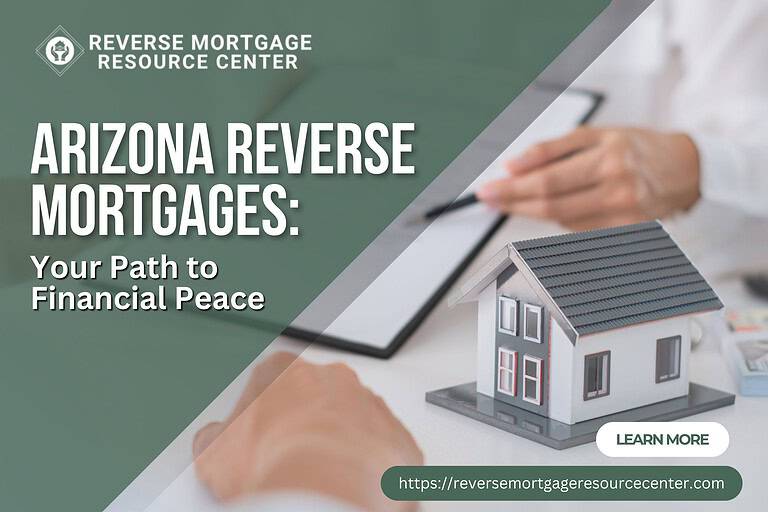Reasons To Consider A Reverse Mortgage Loan
If you’re a homeowner aged 62 or older, a reverse mortgage loan might be the solution to your financial woes. This unique financial product allows you to tap into your home’s equity without selling or making monthly mortgage payments.
In this article, we’ll explore why a reverse mortgage loan might be a smart move for you. From supplementing your retirement income and eliminating monthly mortgage payments to accessing home equity without selling and enjoying financial flexibility and control, a reverse mortgage loan offers many benefits that can help you achieve your financial goals and enjoy your retirement years to the fullest. So, sit back, relax, and dive into reverse mortgages and how they can transform your golden years.
Supplementing Your Retirement Income
Boosting your retirement income can be a game changer, making your golden years more enjoyable and stress-free. One way to achieve this is by considering a reverse mortgage loan, which allows homeowners aged 62 or older to convert a portion of their home equity into cash. This cash can be used to supplement your retirement income, providing additional financial security and peace of mind. In addition, by tapping into your home equity, you can access funds without needing monthly mortgage payments, allowing you to manage your expenses better and maintain a higher quality of life.
A reverse mortgage loan can be an ideal solution for retirees with a significant amount of home equity but who may need more substantial savings or investments to rely on during retirement. By leveraging the value of your home, you can create a steady stream of income that can help cover essential expenses such as healthcare, home maintenance, and daily living costs.
Additionally, a reverse mortgage loan allows you to choose how you receive your funds, whether through a lump sum, monthly payments, or a line of credit. This customizable approach ensures that you can tailor the loan to suit your specific financial needs and objectives, providing a reliable source of income throughout your retirement years.
Eliminating Monthly Mortgage Payments
By opting for a reverse mortgage, you can eliminate your monthly mortgage payments, giving you more financial freedom in your retirement years. This can be especially beneficial for retirees living on a fixed income, as it can free up funds that were previously allocated to mortgage payments. With the extra money, you can cover other essential expenses, such as healthcare costs, home maintenance, or even leisure activities that enhance your quality of life. Furthermore, by eliminating the burden of monthly mortgage payments, you may be able to delay claiming Social Security benefits, allowing you to receive a higher monthly benefit once you do claim. Please seek professional advice regarding potential impacts on Social Security benefits as we are not licensed to provide professional services such as an accountant, attorney, certified financial/estate planner, investment specialist, tax expert, etc.
It is important to note that while a reverse mortgage eliminates your monthly mortgage payments, you are still responsible for other homeownership costs, such as property taxes, insurance, and maintenance. To ensure that you meet these obligations, some reverse mortgage lenders may require you to set aside a portion of your loan proceeds in a “set-aside” account. This account is designed to cover these expenses and protect both you and the lender from defaulting on the loan. In conclusion, a reverse mortgage can provide you with financial relief and more flexibility in your retirement years. Still, it is crucial to fully understand the terms and conditions of the loan and maintain sound financial practices.
Accessing Home Equity Without Selling
Unlocking your home’s equity without having to sell can truly be a game-changer for your retirement plans, offering you financial flexibility and peace of mind. A reverse mortgage loan allows you to do just that by converting a portion of your home’s value into accessible funds you can use. This means you can maintain your current lifestyle, pay off outstanding debts, or even invest in new experiences or opportunities while continuing to live in and retain ownership of your home.
The beauty of accessing your home equity through a reverse mortgage is that it provides you with a steady stream of income, a lump sum, or a line of credit, depending on your needs and preferences. This can be an attractive alternative to selling your home and potentially downsizing, which may not be the ideal solution for everyone. By tapping into your home’s equity with a reverse mortgage loan, you can enjoy the best of both worlds: the comfort and familiarity of your current home and the financial freedom to live your retirement years to the fullest.
Financial Flexibility and Control
Imagine having the financial flexibility and control to truly savor your golden years, making the most of every moment without the constant worry of money hanging over your head. A reverse mortgage loan can provide you with that sense of freedom, allowing you to tap into your home’s equity and use it as a financial cushion, supplementing your retirement income and helping you cover unexpected expenses. This type of loan is specifically designed for homeowners aged 62 and older, offering a unique opportunity to gain access to funds without having to sell your home or take on a new monthly payment.
One of the most attractive aspects of a reverse mortgage loan is the level of control it affords you over your financial future. You can choose to receive the loan proceeds in a lump sum, as a monthly payment, or as a line of credit that you can draw on as needed. This means you can use the funds exactly as you see fit, whether it is to pay off existing debts, cover medical costs, or invest in home improvements. Furthermore, you are not required to repay the loan until you sell your home, pass away, or permanently move out, giving you peace of mind and the ability to truly enjoy your retirement years without the added stress of financial concerns.
Aging in Place and Homeownership Benefits
Embrace the comfort and familiarity of your beloved home as you age gracefully, reaping the benefits of homeownership while maintaining your cherished independence. A reverse mortgage loan can be an essential tool in ensuring that you can continue to live in the same surroundings you have grown accustomed to over the years. This financial solution allows you to tap into your home’s equity to supplement your retirement income, pay off existing debts, or address any other expenses that may arise as you age. With a reverse mortgage, you can enjoy the peace of mind that comes with knowing you can remain in your home for as long as you wish, provided you meet the loan obligations such as paying property taxes, homeowner’s insurance, and maintaining the property.
In addition to the emotional benefits of aging in place, a reverse mortgage loan also offers several practical advantages for homeowners. By converting a portion of your home’s equity into tax-free funds, you can improve your overall cash flow and reduce the financial burden often accompanying retirement. Please seek professional advice regarding potential impacts on income taxes as we are not licensed to provide professional services such as an accountant, attorney, certified financial/estate planner, investment specialist, tax expert, etc.
Furthermore, a reverse mortgage can help you avoid dipping into your hard-earned savings or relying on government assistance programs to make ends meet. You can customize your financial plan with flexible payment options to suit your unique needs and goals. Ultimately, a reverse mortgage can be a valuable resource for seniors looking to preserve their quality of life and retain their autonomy as they navigate the challenges of aging.
Frequently Asked Questions
What are the qualifications and requirements for obtaining a reverse mortgage loan?
To qualify for a reverse mortgage loan, a homeowner must be at least 62 years old, own their home outright, or have a low mortgage balance that can be paid off at closing with proceeds from the reverse loan. The property must be the borrower’s primary residence, be maintained and adhere to FHA and local building codes, be current on all current and future property taxes, and maintain and pay for adequate homeowners insurance. Additionally, the borrower must not be delinquent on any federal debt and must participate in a consumer information session with a Department of Housing and Urban Development (HUD)-approved counselor to ensure they fully understand the loan terms and obligations. It’s essential to note that the loan amount will depend on the borrower’s age, the appraised value of the property, and the current interest rates.
Are there any potential drawbacks or risks associated with reverse mortgage loans?
While reverse mortgage loans can provide financial relief for eligible homeowners, they also come with potential drawbacks and risks. Some of these include upfront costs, such as origination fees, mortgage insurance premiums, and closing costs, which can be more expensive than traditional mortgages. Additionally, borrowers must continue paying property taxes, homeowners insurance, and maintenance costs, or they risk defaulting on the loan. Reverse mortgages can also impact eligibility for needs-based government assistance programs, such as Medicaid, and may reduce the inheritance left for heirs. Please seek professional advice regarding potential impacts to Social Security benefits as we are not licensed to provide professional services such as an accountant, attorney, certified financial/estate planner, investment specialist, tax expert, etc. Moreover, since the loan balance increases over time due to accruing interest, it may result in negative equity if the home’s value decreases, causing the loan balance to exceed the home’s worth.
How does a reverse mortgage loan affect my heirs and their inheritance?
A reverse mortgage loan can affect your heirs and their inheritance in several ways, primarily by reducing the amount of home equity they may inherit. When the homeowner passes away, the loan becomes due and payable, and the heirs have the option to either repay the loan and retain the home or sell the property to settle the debt. If the loan balance is greater than the home’s value, heirs may inherit less or nothing from the home’s sale, depending on the type of reverse mortgage loan. However, if the home’s value has appreciated over time, there may still be remaining equity for the heirs to inherit. Discussing your reverse mortgage loan with your heirs to ensure they understand its implications on their potential inheritance is essential.
What types of properties are eligible for a reverse mortgage loan?
Eligible properties for a reverse mortgage loan typically include single-family homes, two-to-four-unit properties with the borrower occupying one of the units, and certain types of condominiums and manufactured homes. To qualify for a reverse mortgage loan, the property must meet Federal Housing Administration (FHA) guidelines and requirements, as well as pass an FHA appraisal. In addition, the borrower must maintain the property as their primary residence and ensure that it remains in good condition, meeting all local codes and regulations. It is essential to be aware of the specific property eligibility criteria when considering a reverse mortgage loan, as some types of properties may not be allowed, potentially limiting available options.
Can I still obtain a reverse mortgage loan if I have an existing mortgage or other debts?
Yes, you can still obtain a reverse mortgage loan even if you have an existing mortgage or other debts. In fact, many people use a reverse mortgage to pay off their existing mortgage, which can help eliminate monthly mortgage payments. However, it is essential to note that the reverse mortgage proceeds must first be used to pay off any existing liens on the property, such as a mortgage or home equity loan. After paying off these debts, any remaining funds from the reverse mortgage can be used for other expenses or financial needs. It is crucial to understand the terms and conditions of a reverse mortgage, as well as any potential impacts on your financial situation, before deciding if this option is right for you.
Conclusion
In conclusion, it’s clear that a reverse mortgage loan can be an excellent option for many homeowners. It can supplement your retirement income, eliminate monthly mortgage payments, and allow you to access your home equity without having to sell.
Additionally, it offers financial flexibility, control, and the opportunity to age in place while enjoying the benefits of homeownership. It’s definitely worth considering if you’re looking to make the most of your golden years.
REVERSE MORTGAGE RESOURCE CENTER ~LIVE LIFE ON YOUR TERMS~
Our Lending Team has been serving our clients since 2004. We are passionate about serving our clients with integrity to help them achieve their financial goals.







